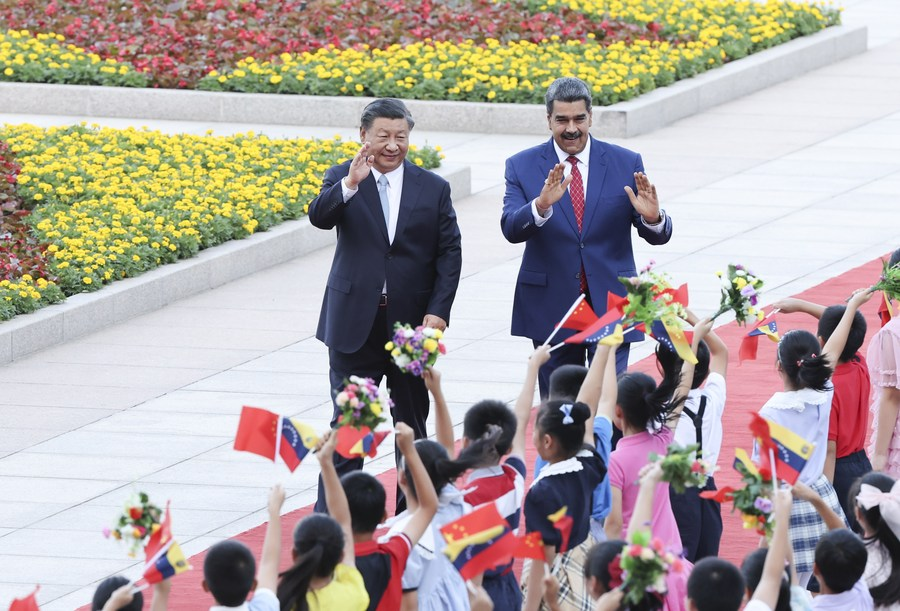Whispers of a Controlled Exit for Xi Jinping: Crisis Within the CCP and the Extreme Difficulty of an Overturn
- Gabriele Iuvinale

- 1 giu 2025
- Tempo di lettura: 3 min
Recently, several authoritative journalistic sources and external analysts have begun to report unusual and potential internal turbulence within the Chinese Communist Party (CCP). According to these rumors, signals are emerging that suggest a possible, albeit "controlled," departure of Xi Jinping from the political stage. The reports cite the re-emergence of old political factions within the Party, once marginalized, and the distancing or cooling of relations with some of his most loyal supporters. These dynamics, while difficult to verify in a system as opaque as China's, fuel speculation about a potential crisis of confidence or internal maneuvers aimed at reducing the excessive centralization of power.

Xi's Power Consolidation: A Nearly Insurmountable Obstacle
However, it's crucial to understand why a hypothetical removal or a "controlled" exit for Xi Jinping, however much desired by some factions or externally wished for, is an extremely difficult undertaking fraught with risks for the CCP itself.
Xi Jinping has methodically and determinedly transformed the traditional collective leadership of the Politburo Standing Committee into a system where "one person is responsible." This process was not accidental but the result of years of anti-corruption campaigns aimed at eliminating rivals, military reforms that cemented his grip on the armed forces, and an intense ideological campaign that reinforced his cult of personality.
His position as the top official, solidified through the removal of presidential term limits and the enshrining of "Xi Jinping Thought" in the Party Constitution, effectively makes him "invincible" within the current political structure. Other members of the Standing Committee and the entire Party apparatus are now his direct subordinates, required to report regularly on their work and demonstrate unequivocal loyalty. Anyone who causes him trouble can be easily "taken down" through accusations of corruption or insubordination, as demonstrated by numerous high-profile purges.
The Extreme Difficulties of an Internal Overturn: Why It's Unlikely (or Catastrophic)
Any attempt to remove Xi Jinping from power would entail consequences of unprecedented gravity for the CCP, due to several structural and political reasons:
Lack of Credible and Popular Alternatives: Xi's system has systematically eliminated potential successors or charismatic figures who could serve as alternatives. There is currently no figure who is sufficiently popular among the populace or who enjoys broad consensus within the Party to "fix the situation" without causing chaos. This absence of a clear heir creates a dangerous void.
Risk of Severe Systemic Instability: The CCP prioritizes internal stability above all else. An attempted removal, even if "controlled," could trigger an internal power struggle that would quickly degenerate into severe political instability, potentially jeopardizing the Party's legitimacy and even its very survival. In a country as vast and complex as China, unrest at the central level could have immense repercussions.
The Risk/Reward Calculus for Elites: Party elites would meticulously weigh the costs and benefits. The perceived damage caused by Xi's continued rule would have to far outweigh the perceived risk of a legitimacy crisis, internal anarchy, or a Party split resulting from an attempt at removal. For most officials, maintaining the status quo, however imperfect, is preferable to chaos.
High Personal Risks for Conspirators: Any attempted plot against Xi would involve extremely high personal risks. His pervasive security and control apparatus, including the Central Commission for Discipline Inspection, has been effectively used to eliminate rivals and maintain discipline. Any internal conspiracy would be incredibly difficult to conceal and would lead to severe retaliation, including imprisonment or worse, for those involved.
Opacity of the System: The secretive and opaque nature of Chinese politics makes it exceedingly difficult for external observers to gauge the true extent of any internal divisions or discontent. Rumors, while interesting, often remain in the realm of speculation. The CCP is an organization that values unity and control above all else, and internal purges are often masked as anti-corruption campaigns, making it hard to distinguish genuine dissent from mere repression.
In conclusion, while journalistic reports about potential cracks in Xi Jinping's power are intriguing and warrant attention, the power structure he has built and the enormous risks of instability that his removal would entail for the CCP itself make such a scenario extremely difficult to materialize in a controlled manner and without devastating consequences. Xi's "invincibility" in this context stems not only from his personal strength but also from the Party's profound reluctance to risk its own survival.




Commenti